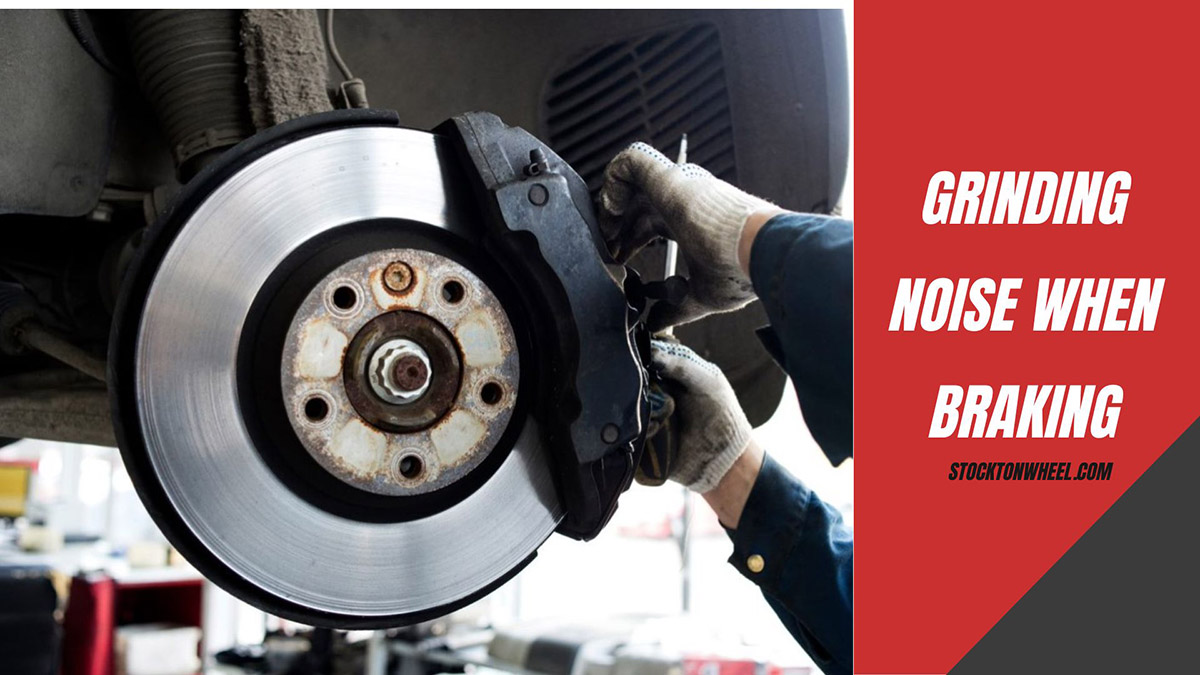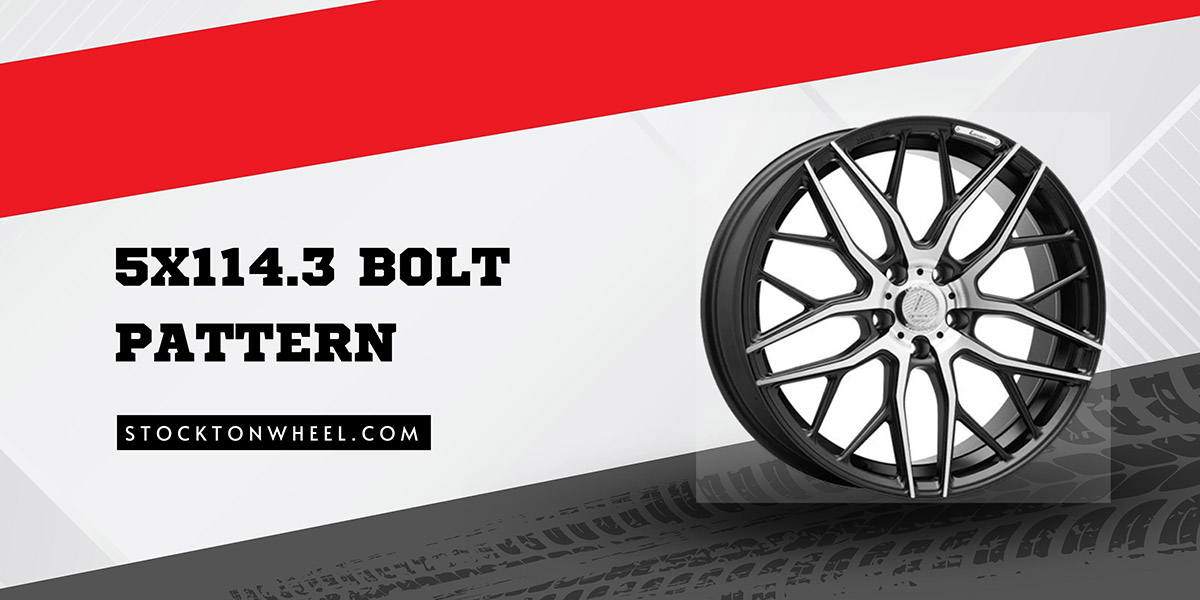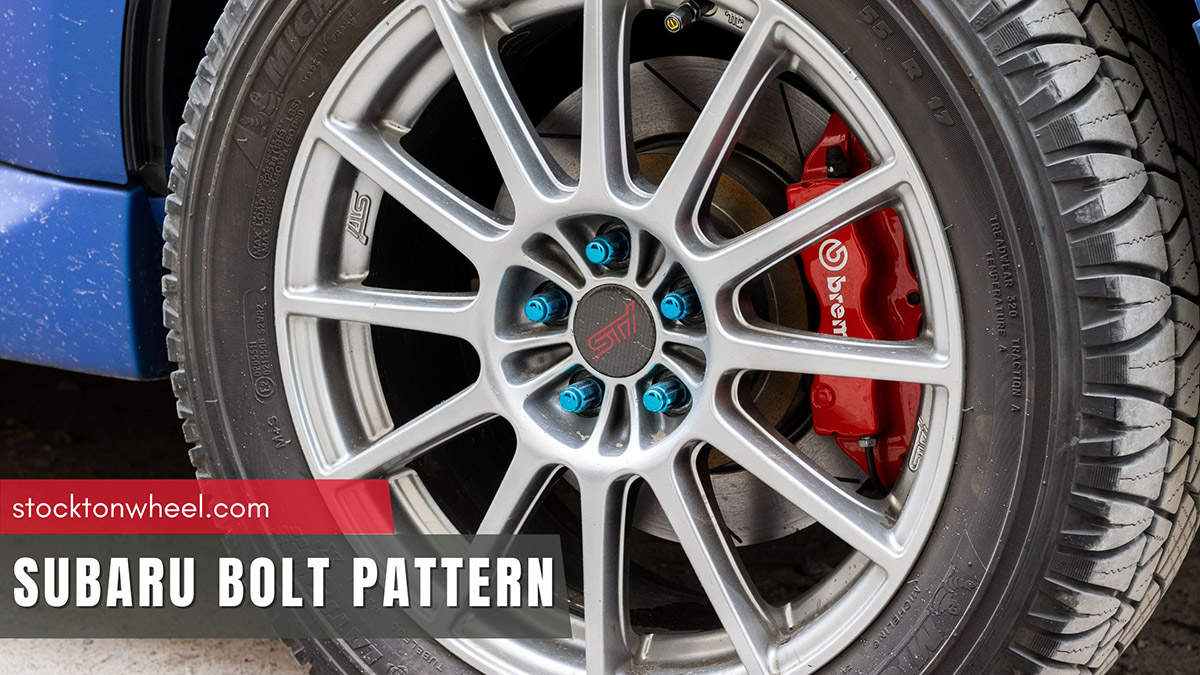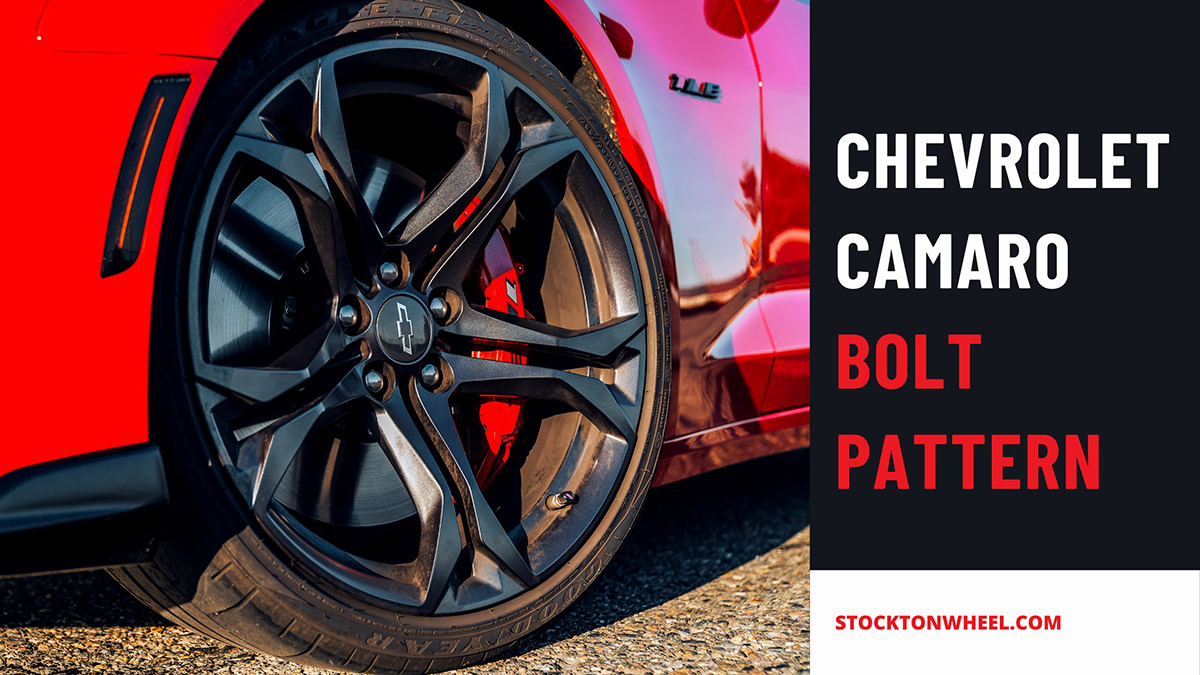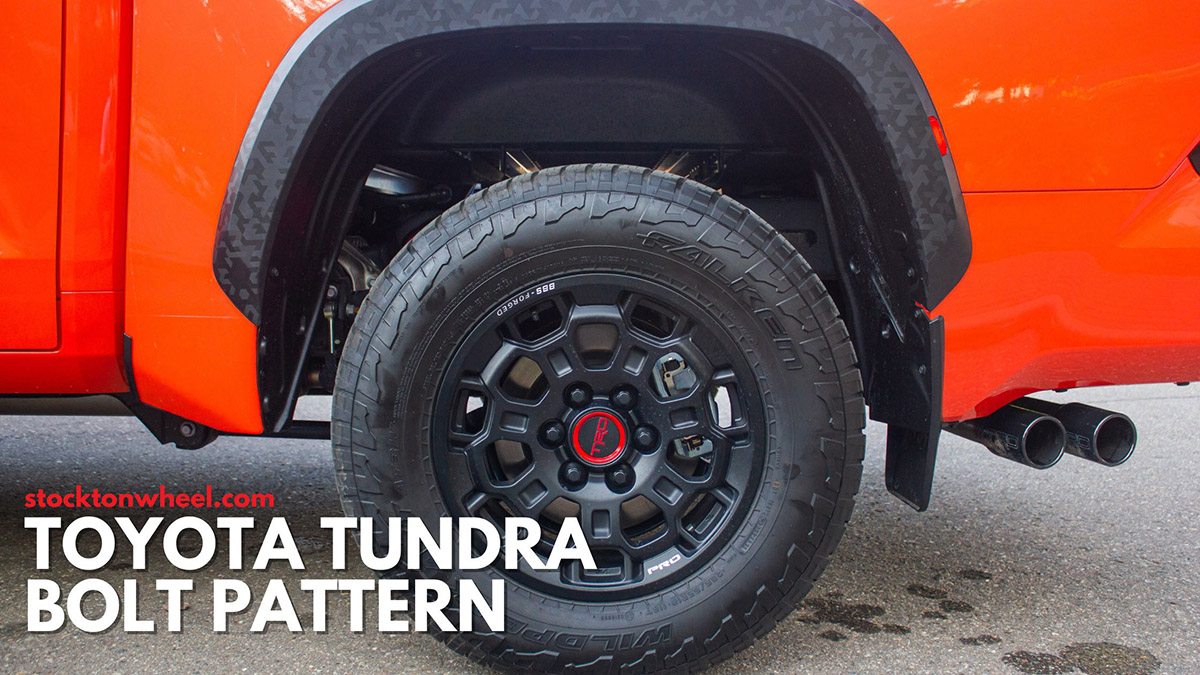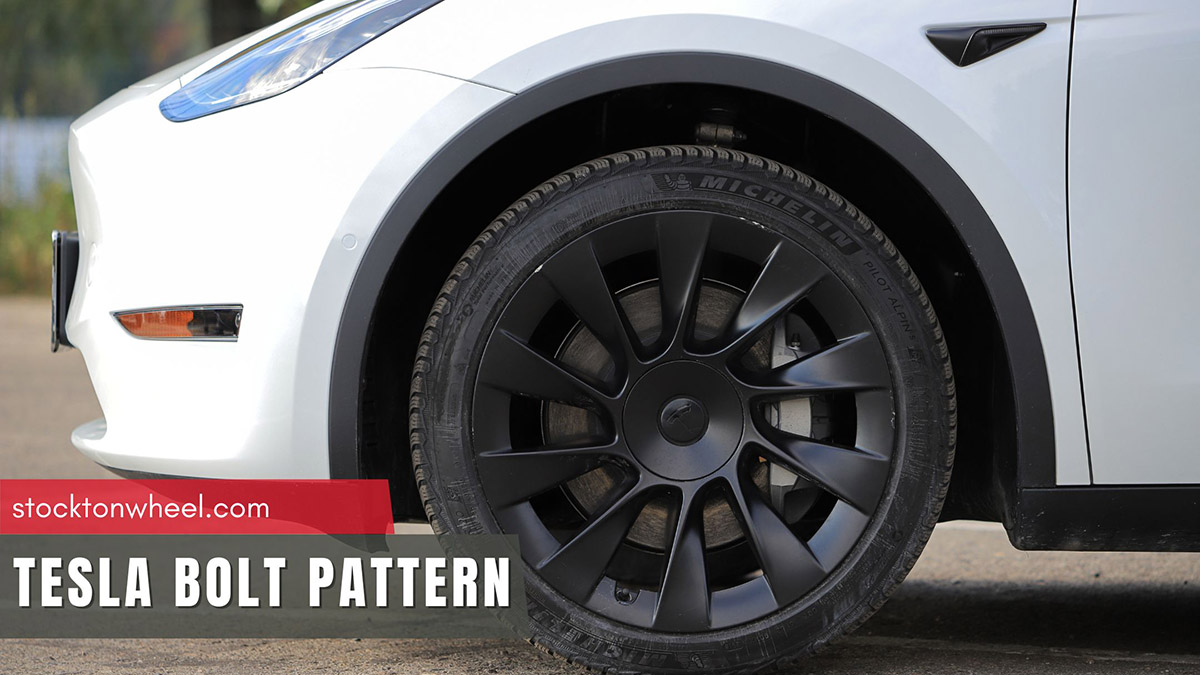Most brake systems in modern cars are designed to operate smoothly, even during hard braking. Therefore, something must have gone wrong if you hear unpleasant, loud brake grinding noises instead. Keep scrolling to see what issue your car may be facing.
In this article:
8 Common Reasons For The Grinding Noise When You Brake
Worn brake pads, issues with the calipers, stuck foreign objects, faulty wheel bearings, and cheap brake pads are the most common culprits behind the dragging sound when braking. The issue also likely occurs if you have left the vehicle idle for too long or forget to lubricate the brake system frequently.
1. Worn-Out Brake Pads
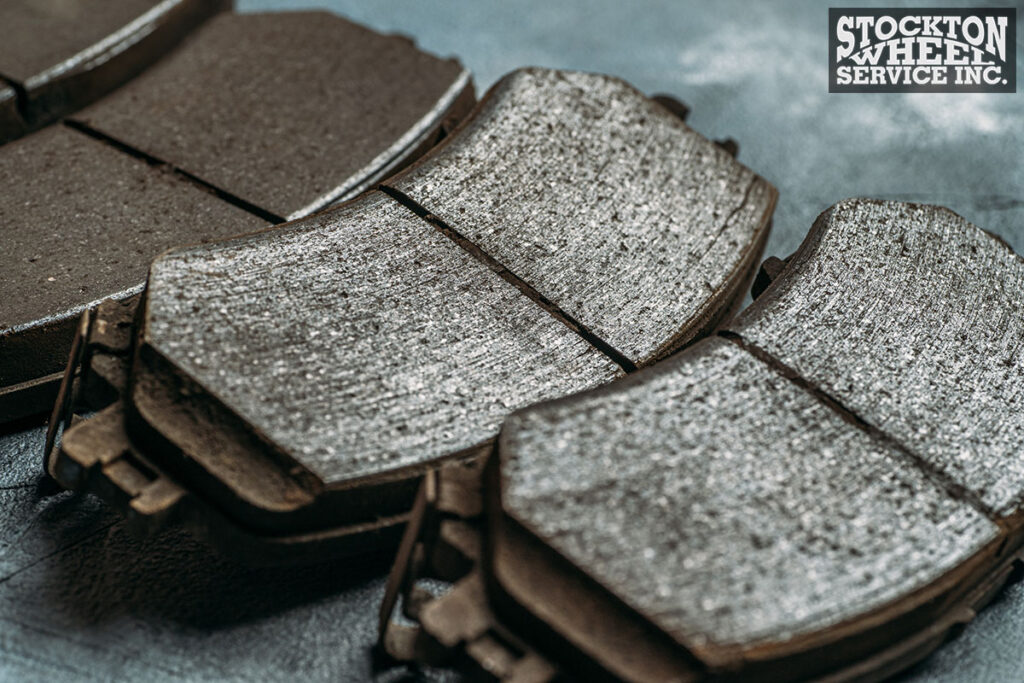
Brake pads come with friction material of steel, brass, granite, or copper. They wear thin over time and eventually expose the metal backing plate, which rubs against the brake rotor to create a loud grinding noise.
Some brake pads emit a squealing noise first that will escalate to serious grinding if left unattended. Unfortunately, most beginners fail to recognize this early warning sign.
2. Brake Caliper Issues
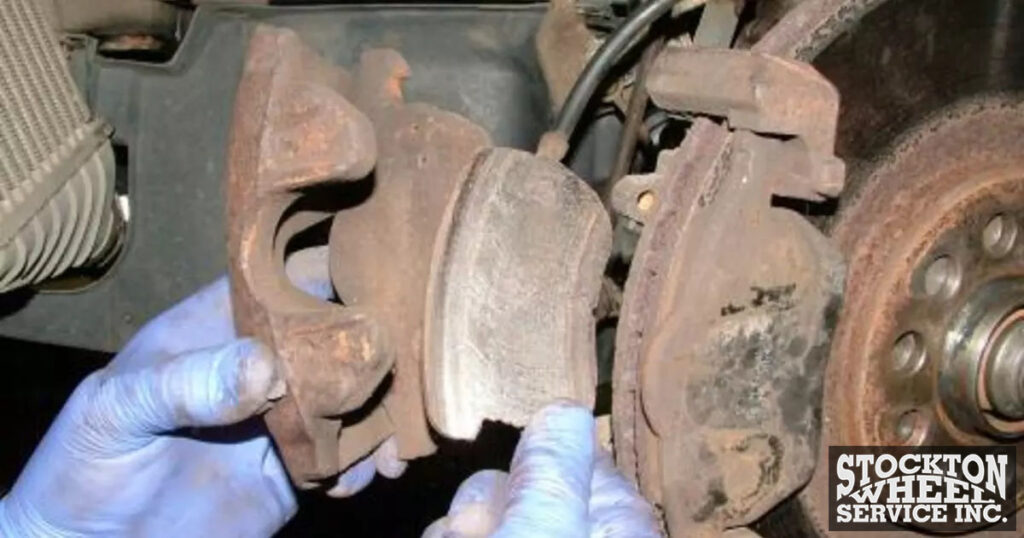
The issue might also stem from brake caliper problems. Specifically, if the caliper hardware (e.g., mounting bolts) is broken, worn, or missing, the caliper will rub against the rotor disc, producing a loud grinding noise.
Similarly, a loose caliper that detaches from its support bracket might grind and drag along the rotor disc. In cases of inadequate lubrication or missing shims between the backing plate and the piston, the friction between these parts will increase, worsening the grinding.
3. Warped or Rusted Brake Rotors
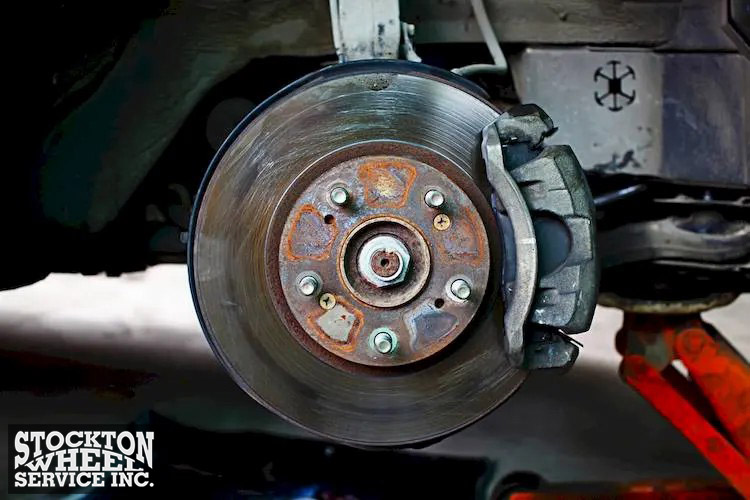
Brake rotors, the discs that the brake pads are squeezed against to slow down the vehicle, are quite vulnerable to warping and rust due to excessive exposure to environmental elements. Once this happens, it creates squeaking/grinding noises during braking. Sometimes, these sounds are accompanied by noticeable vibrations through the steering wheel or brake pedal.
4. Faulty Wheel Bearings
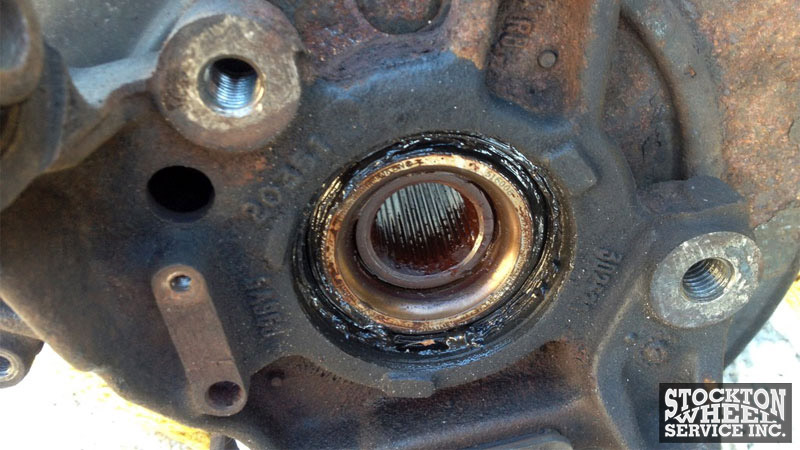
The grinding noise can be the aftermath when one or more wheel bearings wear out due to debris and dirt particles. Other signs of bad wheel bearings include strong vibrations that intensify and subside over time (like how you drive over a rumble strip) and uneven tire wear.
5. Low-Quality Brake Pads
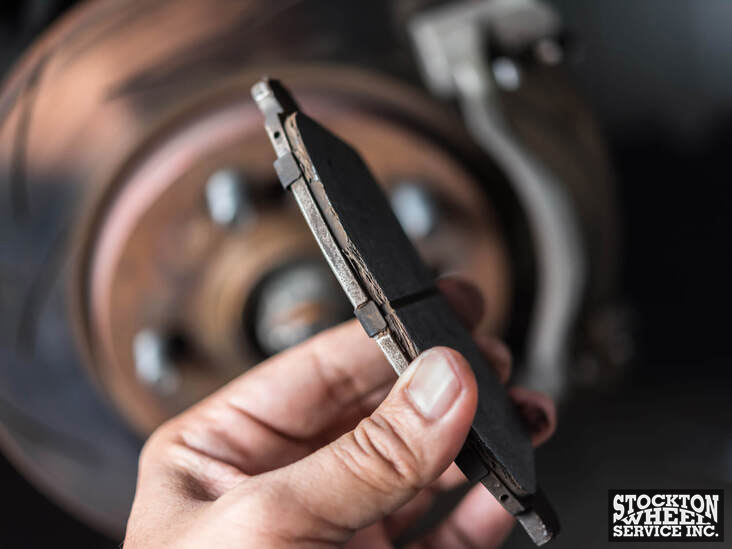
Cheap, low-quality brake pads might increase the wear and tear on your braking system. Worse, most budget brake pads contain much higher metal content than more expensive ones, making them more susceptible to metal-grinding and scraping noises when you stop the car.
6. Lack of Lubrication in The Braking System
Every braking system comprises multiple moving parts that work together, so constant lubrication is a must. Otherwise, the caliper bolts, which help secure the brake caliper in place, will start rusting and produce a loud grinding sound.
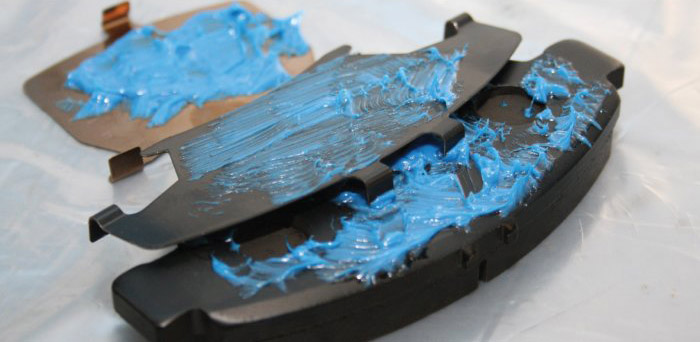
7. Vehicle Inactivity
Leaving your car idling for an extended period paves the way for rust to develop on your brake components, thereby generating an unusual noise. Lack of frequent driving also affects other vehicle systems, such as the tires, battery, and brake fluid.
8. Foreign Objects
What if the grinding and screeching persist even when not braking? Then, inspect the calipers to see whether any foreign object is lodged inside. Nails, shards, small items, etc., might damage the brake disc and, ultimately, result in brake failure if you do not address them right away.
Extra Note:
If you hear a light, jingling noise instead of heavy grinding, it might hint at an issue with the mounting hardware in the brake system; for instance, the slide pins, shims, or anti-rattle clips might have worn down or become loose. Though not as dangerous as metal grinding, the issue still results in possible overheating, uneven wear, and vibrations in the braking components.
What Should You Do Then?
Take immediate action to ensure your safety and prevent further damage to your vehicle’s braking system:
- Pull Over To Somewhere Safe: As mentioned, grinding noises often indicate severely worn brake pads, so continuing to drive can be quite risky. Instead, pull over to somewhere safe, such as a parking lot or the side of the road.
- Inspect Your Brakes: Quickly inspect the brake components; check for their cracks and wear to assess the extent of damage and decide what to do next. For instance, a brake pad thinner than ¼ inch clearly needs to be replaced.
- Have Your Brakes Inspected by An Expert Technician: If you still struggle to pinpoint the source of the problem, ask a service expert to inspect and ensure the brakes function properly. Even when you have already identified and replaced the worn components yourself, it doesn’t hurt to have them double-checked by an expert a second time.
- Test Drive: Drive for 5-15 minutes to assess the overall braking performance and address any remaining issues.
What If The Brakes Make Grinding Noises When Stopping, But The Brake Pads/Shoes Are Fine?
Although issues with the brake pads and calipers are the most common reasons for the grinding noise, they are not the only potential culprits. The noise might stem from faulty wheel bearings, lack of lubrication, and long idle periods as well.
For older vehicles with rear drum brakes, trapped dust between the drums and shoes usually creates a temporary grinding noise when braking. A bent caliper pin or misaligned backing plate might also cause the shoes to scrape against the drums.
How Long Can You Travel on Grinding Brakes?
Driving with grinding brakes is not recommended and can lead to dangerous consequences, such as decreased control, damage to the braking system, and possible accidents. Once you notice the braking noises, it’s best to address the issue immediately.
Conclusion
When your brakes sound like they are grinding, inspect the pads and calipers first since they are the most common culprits behind the issue. If both still work properly, consider checking other components like the wheel bearings, rotors, and brake fluid.
To prevent the noises in the future, avoid leaving your car idling for too long, and remember to lubricate the braking system regularly.

